Publications
Articles, publications, books, tools and multimedia features from the U.S. Institute of Peace provide the latest news, analysis, research findings, practitioner guides and reports, all related to the conflict zones and issues that are at the center of the Institute’s work to prevent and reduce violent conflict.
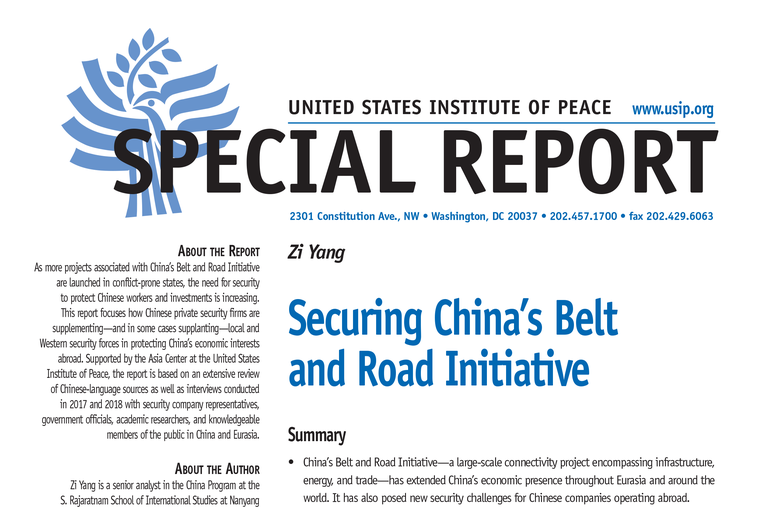
Securing China’s Belt and Road Initiative
USIP’s new Special Report provides an overview of the different security arrangements China is using to protect its overseas investments and workers, and examines how the Belt and Road Initiative is spurring the rapid growth of China’s domestic private security industry.
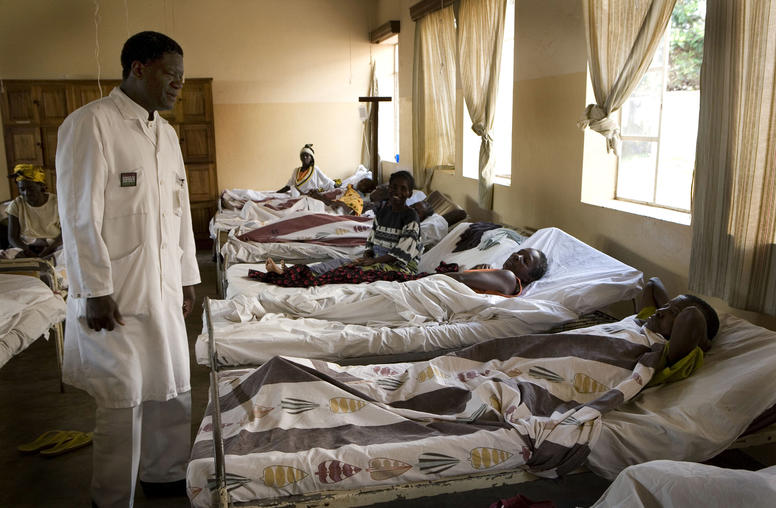
The Elusive Peace: Ending Sexual Violence during and after Conflict
Awarding the 2018 Nobel Peace Prize to advocates for survivors of wartime sexual violence, Dr. Denis Mukwege and Nadia Murad, indicates that the issue of sexual abuse has gained international recognition. This comes ten years after the adoption of the UN Security Council Resolution 1820, which declared that conflict-related sexual violence constitutes a war crime and a crime against humanity. This Special Report highlights the limited scope of the resolution, examines the connections between sexual violence and conflict, and urges key stakeholders to view sexual violence—both during conflict and after—as a threat to international peace and security.
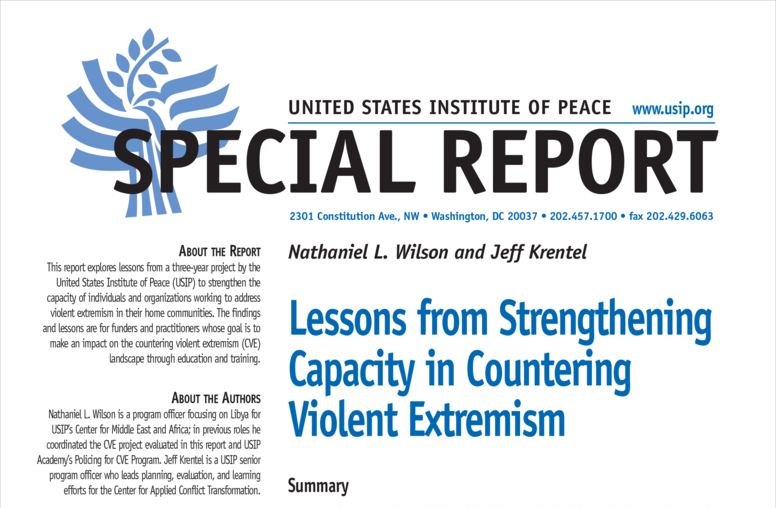
Lessons from Strengthening Capacity in Countering Violent Extremism
An evaluation of a three-year USIP program to strengthen capacity in the field to counter violent extremism revealed that effective project design, thoughtful recruitment strategies, and tailored course content are critical. Participants reported applying what they learned to either adjust existing CVE programs or develop new programs altogether. This report explores the lessons from the project for funders and practitioners to develop more effective projects.
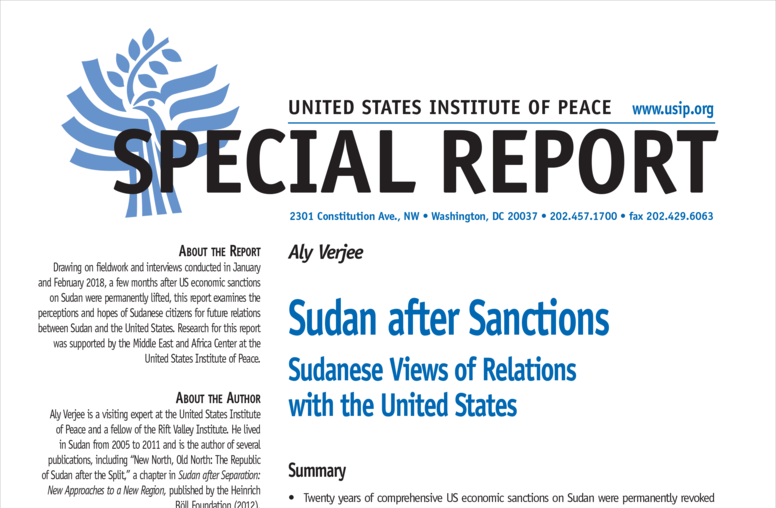
Sudan after Sanctions
In October 2017, the United States lifted a wide range of economic sanctions that had been in place against Sudan for two decades. Aly Verjee, a visiting expert at the United States Institute of Peace, recently interviewed roughly 50 Sudanese—including students, business owners, doctors, laborers, activists, and others outside the government-connected elite—on what this first step in the normalization of relations between Sudan and the United States might mean for the future of their country.
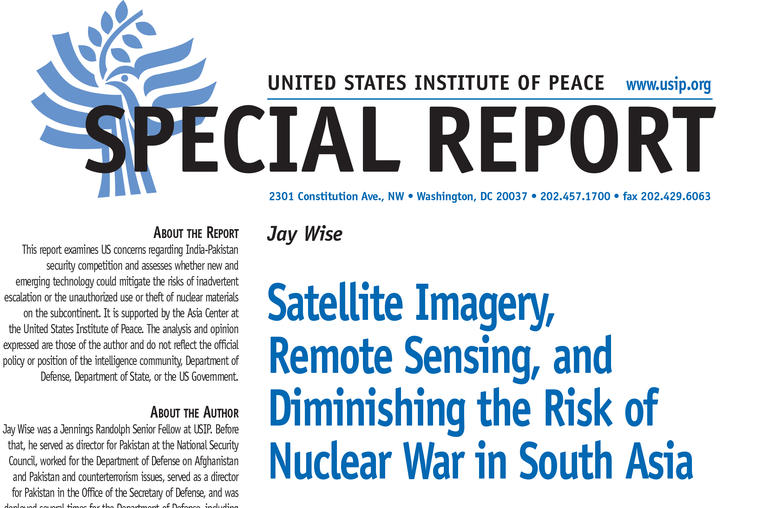
Satellite Imagery, Remote Sensing, and Diminishing the Risk of Nuclear War in South Asia
This report examines U.S. concerns regarding India-Pakistan security competition and assesses whether new and emerging technology could mitigate the risks of inadvertent escalation or the unauthorized use or theft of nuclear materials on the subcontinent.
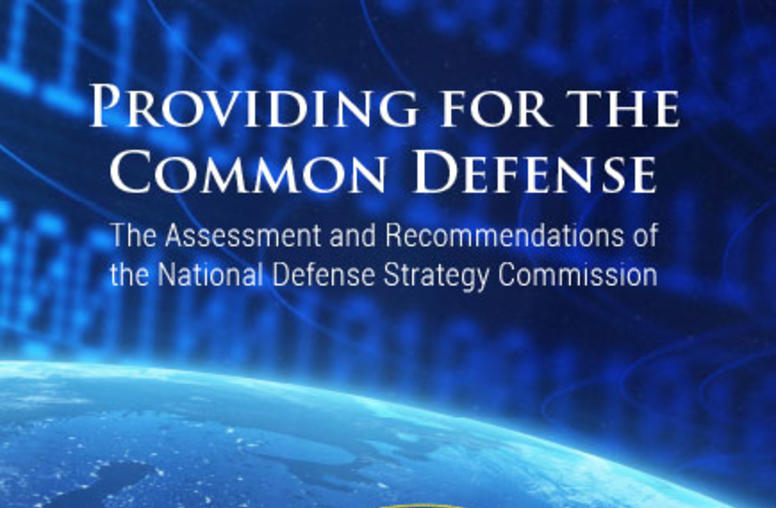
Providing for the Common Defense
The final report of the National Defense Strategy Commission is a compilation of the assessments of the National Defense Strategy and recommendations based on its analysis related not just to defense strategy, but also to the larger geopolitical environment in which that strategy must be executed. They consulted with civilian and military leaders in the Department of Defense, representatives of other U.S. government departments and agencies, allied diplomats and military officials, and independent experts.
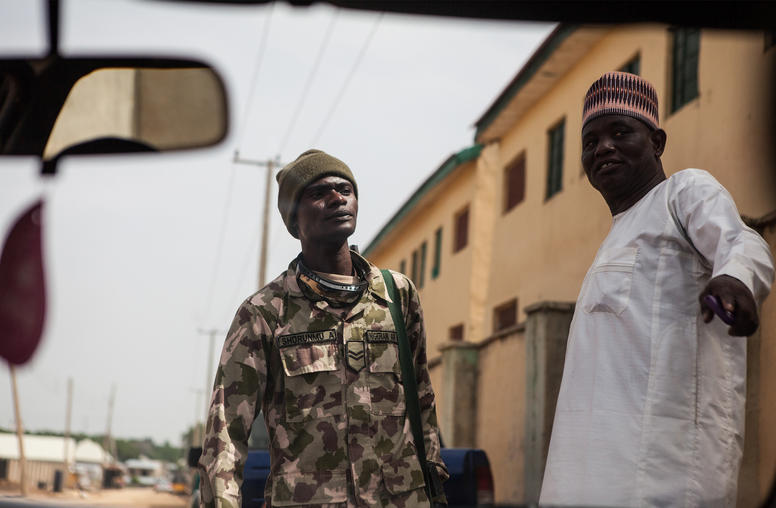
Civilian-Led Governance and Security in Nigeria After Boko Haram
Focusing on northeast Nigeria and the Lake Chad Basin, this Special Report outlines the rise of the Boko Haram insurgency in Nigeria and the security and governance challenges in the wake of its possible decline.
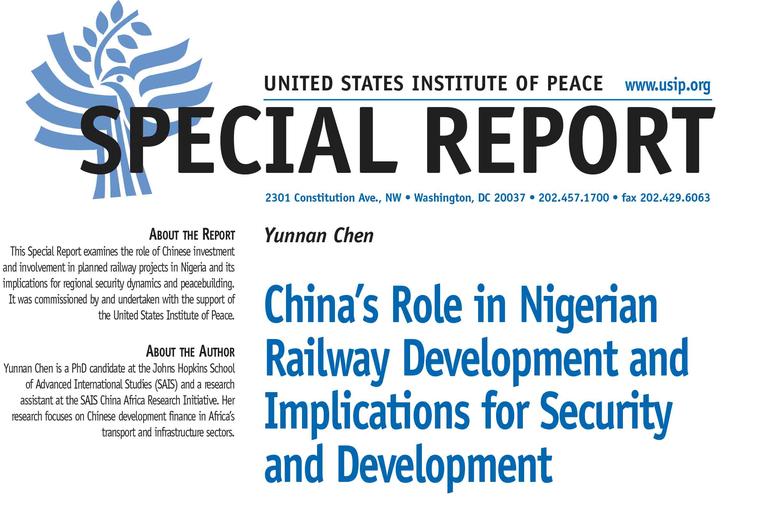
China's Role in Nigerian Railway Development and Implications for Security and Development
This report focuses on Chinese involvement and investment in Nigeria’s railway sector and the intersection of planned projects and regional security dynamics. Examining the role of Chinese loan financ
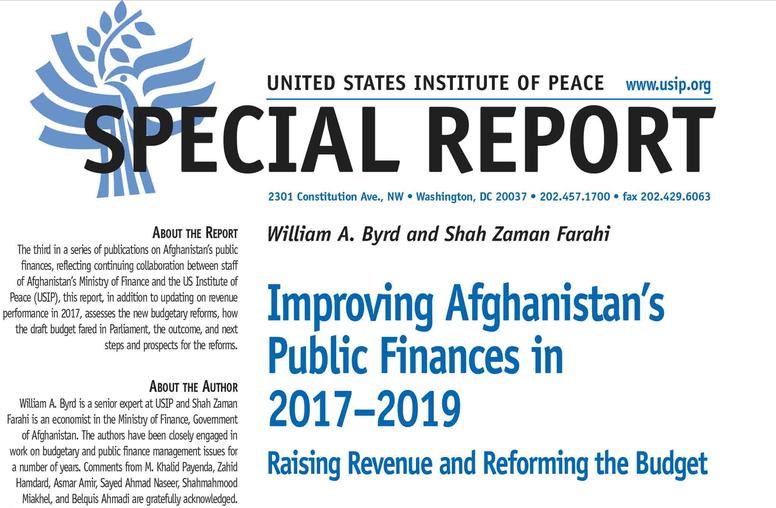
Improving Afghanistan’s Public Finances in 2017–2019: Raising Revenue and Reforming the Budget
The Afghan government has recently embarked on important reforms to the national budget, embodied in the 2018 budget approved by Parliament early this year. This budget sets in motion an envisaged two-year reform process to achieve greater overall transparency, better development programming, and reduced corruption. The third in a series on Afghanistan’s public finances, this report updates revenue performance in 2017 and assesses the new budgetary reforms, how the draft budget fared in Parliament, the outcome, and next steps and prospects for the reforms.
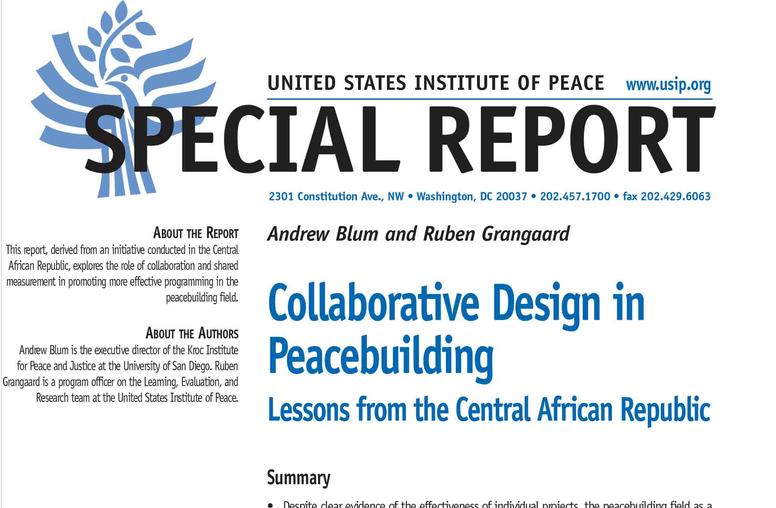
Collaborative Design in Peacebuilding
Despite clear evidence of the effectiveness of individual peacebuilding efforts, the field as a whole often struggles to have a meaningful collective impact on broader conflict dynamics. This report, drawing on a pilot initiative in the Central African Republic—IMPACT-CAR—to develop a shared measurement and reporting system aimed at improving collaboration and shared learning across peacebuilding implementers, reflects on the results, successes, and challenges of the initiative to offer a road map for future initiatives focused on collective impact in the peacebuilding field.